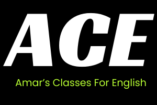ENGLISH
Directions (1-3): Read the passage given below and answer the questions that follow by selecting the most appropriate option.
Madam Cama’s Paris home became a shelter for world revolutionaries. Even Lenin, the father of Russian revolution visited her house and exchanged views. Savarkar got all encouragement in writing the history of the “First Indian War of Independence” from Cama. She helped its printing in Holland as no English publisher came forward to publish it. It was a banned book but found its way to India. Smuggled ingeniously under “Don Quixote” covers! She became the publisher of “Vande Mataram”, a revolutionary magazine and its distributor, an extremely difficult task in the days of British espionage. Another magazine “Madan’s Talwar” was also started in memory of Madan Lal Dhingra who laid down his life for the country. Both the magazines were outlawed in India and England. Madam Cama somehow found the ways to send them to Indian revolutionaries.
Madam Cama also fought for the cause of women. Speaking at National Conference Cairo, Egypt in 1910, she asked, “Where is the other half of the Egypt? I see only men who represent half of the country!” She stressed the role of women in building a nation.
When the First World War broke out in 1914, Madam Cama took an anti-British stand and tried her best to make the Indian people aware of the exploitative nature of British imperialism. The British had banned her entry into India, being afraid of her revolutionary past and staunch nationalistic outlook. But the lioness was getting old and 35 years of fighting on foreign-land had taken its toll. She decided to return to her motherland. Her health was worsening. After reaching Bombay, she was hospitalised and died on 13th of August, 1936.
1. The author’s attitude to Madam Cama can be described as__
(a) laudatory
(b) critical
(c) contradictory
(d) hostile
2. The word ‘ingeniously’ most nearly means
(a) cleverly
(b) wilfully
(c) devilishly
(d) secretly
3. The word which is opposite in meaning to ‘famous’ is
(a) undesirable
(b) mysterious
(c) unknown
(d) unpopular
Directions (4-6): Fill in the blanks.
4. Will you be here weekend ?
the
(a) in
(b) on
(c) about
(d) at
5. A good judge never jumps the conclusion.
(a) at
(c) to
(b) for
(d) on
6. Such remarks are certainly derogatory____ your reputation.
(a) for
(b) to
(c) with
(d) of
7. You must look into this matter. (passive)
a) This matter has been looked into by you
b) This matter may be looked into by you
c) This matter should be looked into by you
d) This matter into looked by you
8. The correct sentence is:
(a) The bags together with the books
are lost.
(b) The bags together with the books is lost.
(c) The bags together with the books is lost
(d) The bags together with the books is lost
9. The boy stood on the table to catch the attention of the audience. The underlined phrase is :
(a) A Noun phrase
(b) A Verb phrase
(c) An Adjective phrase
(d) An Adverbial phrase
10. What does the idiom “Be-all and end-all” mean?
(a) From beginning to end
(b) That which begins well
(c) That which ends well
(d) The whole and sole
11. To deal in something’ means :
(a) to distribute something
(b) to trade in something
(c) to be about something
(d) to handle something
12. The most appropriate one word substitute for “A person living at the same time as another” is :
(a) Archaic
(b) Nostrum
(c) Contemporary
(d) None of these
13. The antonym of Familiar
(a) Known
(b) Infamiliar
(c) Unfamiliar
(d) Unknown
14. Complete the sentence ‘Aesthetic’ means
(a) sorrow
(b) despair
(c) beauty
(d) pleasure
15. What is the synonym of ‘wisdom’?
(a) swell
(b) sagacity
(c) foolishness
(d) surrender
16. Which one of the following is the correct spelling?
(a) Ceasarean
(c) Caesarean
(b) Caesaraen
(d) Ceasaraen
Directions (17-18): In the following questions, some of the sentences have errors and some have none. Find out which part of a sentence has an error. The number of that part is your answer. If there is no error, your answer is (d).
17. I found (a)/the two first chapters of the book (b)/particularly interesting (c)/No error (d).
18. Bacon, the father of the English essay (a)/had a thirst (b)/of knowledge. (c)/No error (d).
19. Choose the word opposite in meaning to the given word.
Despair
(a) Belief
(b) Trust
(c) Hope
(d) Faith
20. Choose the most appropriate preposition out of four options:
She has three children ___ her first husband.
(a) of
(b) by
(c) in
(d) from
Answer


